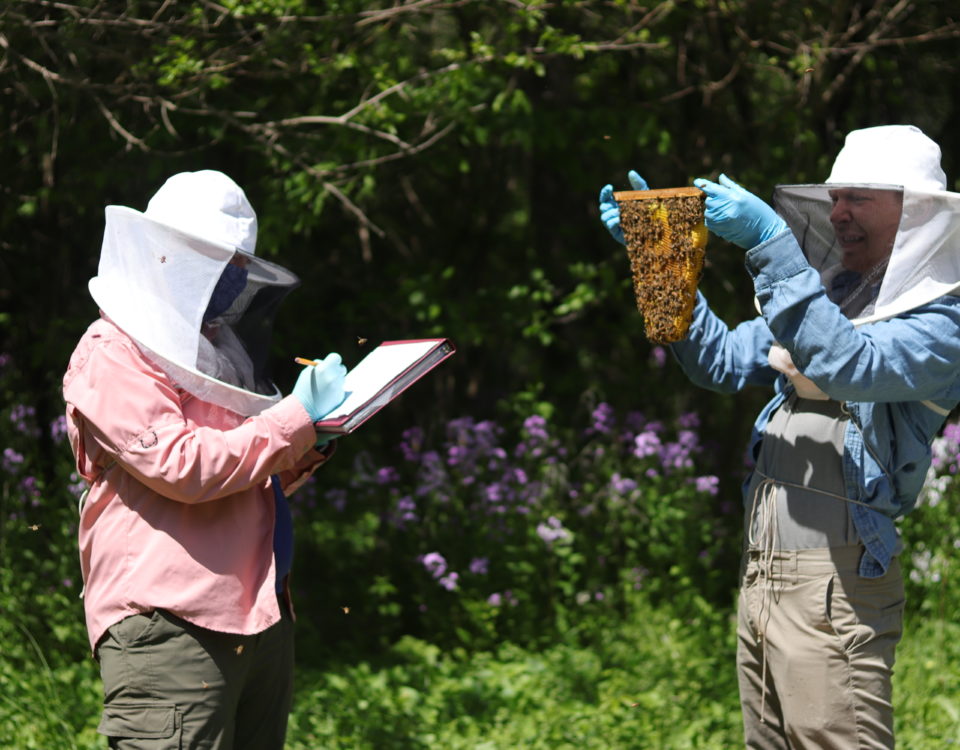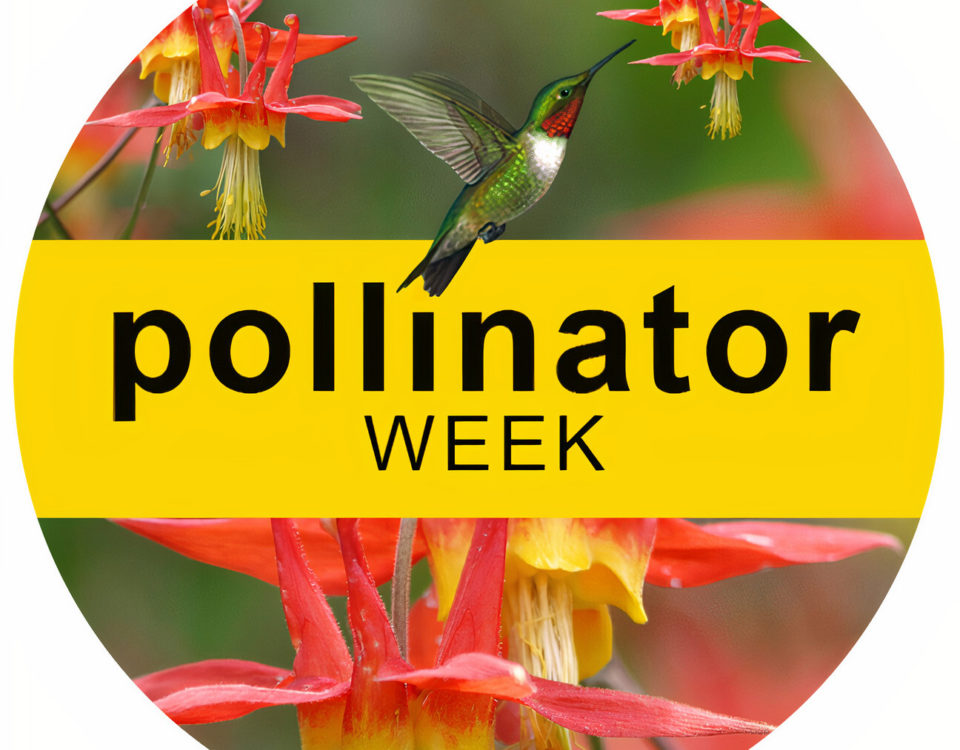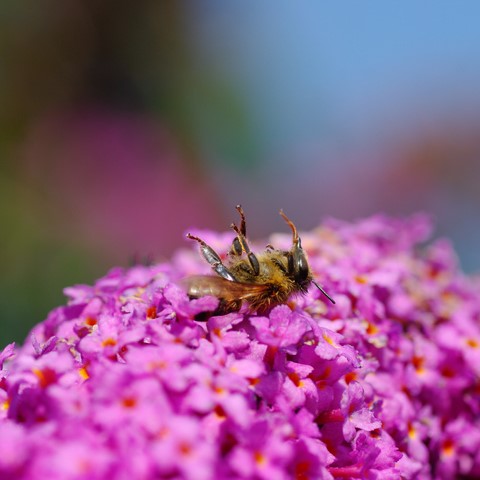- All-In-One Beekeeping for the Bees
- +1-608-728-8233
- info@beepods.com
How to Prevent and Deal With Hive Vandalism

Aftermath of the Currie Park vandalism

Toppled hives at Wild Hill Farm in Iowa – photo by Wild Hill Honey
In late December, the beekeeping world was shaken by the news that a honey farm in Sioux City, Iowa, had been vandalized. Two preteens overturned the hives and ransacked the shed where the farmers stored their beekeeping supplies. 500,000 bees were killed, and losses were estimated to total $60,000.
In mid-January, another vandalism took place in Prunedale, California, where a yet-unidentified vandal toppled 100 hives and poured gasoline over them, killing an estimated 200,000 bees.
Our hearts go out to the beekeepers (and the bees) affected by these tragedies, and we hope that it doesn’t happen to any more beekeepers. Back in late 2015, a Beepod in our community was vandalized, so we’ve used that experience to compile some tips to thwart vandals, and how to deal with vandalism if it happens to you.
Tips to Prevent Vandalism
Build a Fence
Firstly, it’s a good idea to locate your hive within a fenced-in area. This won’t stop the more determined vandals, but a 6-foot fence will definitely deter some. This is especially true if it’s the type of fence that people can’t see through – if they can’t see a hive, they may not know that it’s there. As an added bonus, a fence will act as a windscreen in the winter, protecting your bees from the cold!

Beepods Lid Lock
Lock Up Your Hive
While this next tip won’t be compatible with all types of hives, it’s a great way to minimize the amount of damage that a vandal can do. If you can, get a locking lid on your hive. If a person can’t get inside of a hive without a key, the most they can do is try to knock it over (we’ll address this in the next section). While this will do some damage to a hive, like knocking comb out of place and crushing bees. Unless the majority of the hive or the queen is killed, the colony will likely be able to recover.
Bolt It Down
In order to prevent hive toppling, try bolting down your hive. Again, this may not be possible with all kinds of hives, or all hive locations. If you can bolt it down, though, vandals will be unable to tip over your hive and jostle the colony inside. If you combine this with a locking lid, your hive essentially becomes a fortress for your bees.
Educate Your Community
Lastly, and most importantly, educate your community. The reason that most people lash out against honey bee hives is that they are afraid. How many times have you been sitting in a park on a lovely summer afternoon, surrounded by families having picnics? Now, how many times have you seen a family begin panicking because some bees had gotten a little too close? More than a few times, right?

Bee vs. Wasp
Well, first of all, what they were seeing was likely a wasp, not a bee. This is a common mistake that has been perpetuated for many, many years. Children are taught from a young age to think that all black and yellow striped insects are bees, and that they will be stung if that insect gets too close. Most bees are actually quite docile, and don’t typically approach humans. Wasps, however, are more aggressive, and can sting as many times as they please with no consequences to themselves. They are also carnivores, and will eat human food, which is why they are often found buzzing around picnics or barbecues.
Because so many people grow up not knowing the difference between bees and wasps, either in appearance or behavior, the two are often lumped together. By finding a way to educate the people around you about bees, the more likely they are to find a way to understand and appreciate bees, rather than fear them.
This may sound like an impossible task – how is one person supposed to spread the word to their entire community? By starting small, of course! Mention to the staff at your local library or community center that you’d like to see an event about honey bees and why they are so important. And, if you feel comfortable, offer to speak or help organize the event.
You could also start a blog about your beekeeping experience that details how rewarding the experience is, and how gentle the bees are. Create a Facebook community page and get your friends and neighbors to “like” it. Social media is a powerful tool in the fight to save the bees.
Tips to Deal With Vandalism if it Happens to You
Be Insured
While some beekeepers find themselves unable to get coverage for their hives (this was sadly the case for the honey farmers in Iowa), talk to your insurance agent and see if they will provide coverage in case of any sort of incident. If anything were to happen, you would at least have the comfort of knowing that you wouldn’t be left with nothing.
Have a Hive With Interchangeable Parts
While some beekeepers find themselves unable to get coverage for their hives (this was sadly the case for the honey farmers in Iowa), talk to your insurance agent and see if they will provide coverage in case of any sort of incident. If anything were to happen, you would at least have the comfort of knowing that you wouldn’t be left with nothing.

Aftermath of the Currie Park vandalism
Having a hive with easily replaceable parts is a wonderful thing in case of vandalism. When the Beepod at Currie Park Golf Course was vandalized, Beepods was able to bring out new parts for the hive right away. This was also good for the bees, because since parts of the hive that were damaged were easily replaceable, they didn’t have to move into a whole new hive.
Our last tip is to build a beekeeping community. After the Iowa farmers’ hives were destroyed, they thought that they had lost everything. Thanks to the amazing beekeeping community, a GoFundMe was started to help them to rebuild, and as of the writing of this article, donations total over $30,000.
At Beepods, we have our own community of fantastic beekeepers who support one another. After the Currie Park vandalism, several Beepods beekeepers offered bars of honey to help replace those that had been destroyed. With winter just around the corner, this was an extremely generous donation for them to make.
Vandalism is a real risk for beekeepers everywhere, even if you take every precaution against it. If you are prepared for it, though, you can minimize its impact on you and your bees.
Devon Rowley
Latest posts by Devon Rowley (see all)
- Why You Should Purchase the Beepods Online Course - May 16, 2018
- Hive Alive Review - March 16, 2018
- Nucleus Colony or Packaged Bees – Which is right for you? - March 13, 2018



